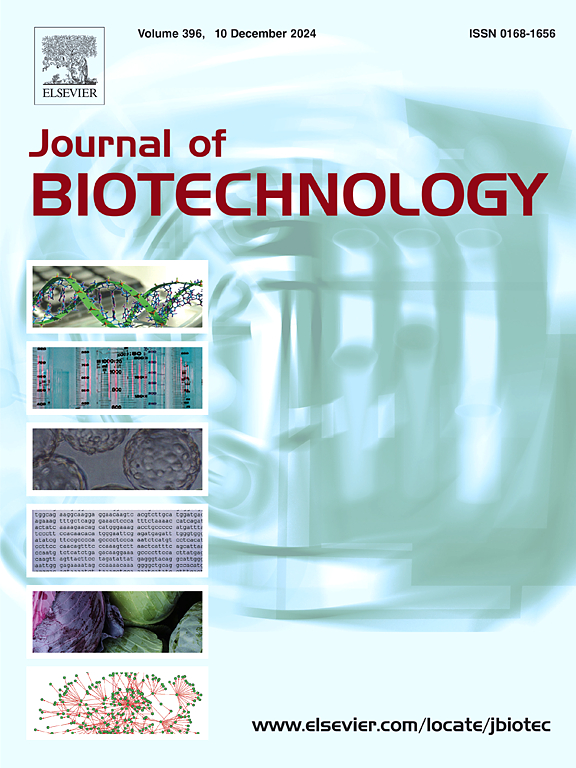基孔肯雅病毒中和性单克隆抗体在烟草植株中的表达
IF 3.9
2区 生物学
Q2 BIOTECHNOLOGY & APPLIED MICROBIOLOGY
引用次数: 0
摘要
基孔肯雅病毒(CHIKV)引起一种使人衰弱的肌肉骨骼疾病,其特征是流感样症状、皮疹和严重关节疼痛,即使在感染消退后也可持续数月。尽管美国于2023年批准了首个用于成人的CHIKV疫苗,但目前尚无针对感染的特异性抗病毒治疗方法。虽然已经考虑了中和基于抗体的预防和治疗药物,但可负担性和可及性是基孔肯雅病流行的全球区域的主要障碍。在这里,我们在benthamiana植物中表达了5种抗chikv中和IgG单克隆抗体(mab),以研究该制造平台的潜在用途。植物产生的IgG单克隆抗体优于哺乳动物细胞表达的抗体,包括与CHIKV抗原的结合动力学和中和活性。从植物中获得的单克隆抗体的产量是可变的,因为其中三种抗体的产量需要进一步优化表达以保证未来的发展。这些抗体在N. benthamiana植物中的成功表达支持了全球健康产品靶点的不断增长,这些靶点可以在资源贫乏的国家使用高度可转移、低成本、低技术的植物生产平台开发。本文章由计算机程序翻译,如有差异,请以英文原文为准。
Characterisation of chikungunya virus neutralising monoclonal antibodies expressed in tobacco plants
Chikungunya virus (CHIKV) causes a debilitating musculoskeletal disease, characterised by flu-like symptoms, rash, and severe joint pain, which can last for months, even after the resolution of infection. Although the first CHIKV vaccine was approved in the USA in 2023 for use in adults, there is currently no specific antiviral therapy for infection. While neutralising antibody-based prophylactic and therapeutic agents have been considered, affordability and accessibility are major barriers to global regions where Chikungunya disease is epidemic. Here, we expressed five anti-CHIKV neutralising IgG monoclonal antibodies (mAbs) in N. benthamiana plants to investigate the potential use of this manufacturing platform. Plants produced IgG mAbs that compared favourably to mammalian cell-expressed antibodies, including for binding kinetics to CHIKV antigens and neutralisation activity. The yields of mAbs from plants were variable, as three of the antibodies’ yields would need further expression optimisation to warrant future development. The successful expression of these antibodies in N. benthamiana plants supports the growing pipeline of Global Health product targets that could be developed using a highly transferable, low-cost, low-tech plant production platform in resource-poor countries.
求助全文
通过发布文献求助,成功后即可免费获取论文全文。
去求助
来源期刊

Journal of biotechnology
工程技术-生物工程与应用微生物
CiteScore
8.90
自引率
2.40%
发文量
190
审稿时长
45 days
期刊介绍:
The Journal of Biotechnology has an open access mirror journal, the Journal of Biotechnology: X, sharing the same aims and scope, editorial team, submission system and rigorous peer review.
The Journal provides a medium for the rapid publication of both full-length articles and short communications on novel and innovative aspects of biotechnology. The Journal will accept papers ranging from genetic or molecular biological positions to those covering biochemical, chemical or bioprocess engineering aspects as well as computer application of new software concepts, provided that in each case the material is directly relevant to biotechnological systems. Papers presenting information of a multidisciplinary nature that would not be suitable for publication in a journal devoted to a single discipline, are particularly welcome.
 求助内容:
求助内容: 应助结果提醒方式:
应助结果提醒方式:


